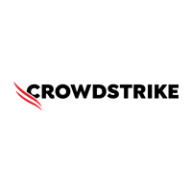

Red Hat Advanced Cluster Security for Kubernetes and CrowdStrike Falcon Cloud Security are two leading security solutions for Kubernetes environments. CrowdStrike Falcon Cloud Security has a stronger feature set, while Red Hat Advanced Cluster Security receives high marks for its support.
Features: Red Hat Advanced Cluster Security is praised for its robust governance and compliance capabilities, threat detection, and monitoring. CrowdStrike Falcon Cloud Security is noted for its integration flexibility, comprehensive threat intelligence, and extensive feature set.
Room for Improvement: Users suggest enhancements in scalability, more integration options, and better customization for alerts for Red Hat Advanced Cluster Security. CrowdStrike Falcon Cloud Security users recommend improvements in reporting tools, better customization for alerts, and enhanced scalability.
Ease of Deployment and Customer Service: Red Hat Advanced Cluster Security is commended for its straightforward deployment process backed by strong customer service. CrowdStrike Falcon Cloud Security receives positive feedback for deployment but occasionally notes complexity in initial setup. Customer service for CrowdStrike is well-rated but not as prominently highlighted as Red Hat's support.
Pricing and ROI: Red Hat Advanced Cluster Security is seen as competitively priced with a good return on investment, attributed to its effective support and comprehensive features. CrowdStrike Falcon Cloud Security, while perceived as more expensive, is considered worth the higher price due to its advanced capabilities and integration options.
| Product | Market Share (%) |
|---|---|
| CrowdStrike Falcon Cloud Security | 4.2% |
| Red Hat Advanced Cluster Security for Kubernetes | 2.1% |
| Other | 93.7% |


| Company Size | Count |
|---|---|
| Small Business | 13 |
| Midsize Enterprise | 6 |
| Large Enterprise | 14 |
| Company Size | Count |
|---|---|
| Small Business | 6 |
| Midsize Enterprise | 2 |
| Large Enterprise | 4 |
CrowdStrike Falcon Cloud Security is a platform of cloud security solutions aimed at protecting organizations from breaches while simplifying cloud security management. The unified platform combines several cloud security functionalities for comprehensive protection. Built on the CrowdStrike Falcon Platform, it leverages the powerful agent and technology used in CrowdStrike's renowned endpoint protection solutions, extending its capabilities seamlessly to cloud environments.
CrowdStrike Falcon Cloud Security is designed to be a shield for the cloud infrastructure. One of its key strengths is its ability to monitor cloud workloads for potential breaches and attacks. It doesn't matter if you're running virtual machines, containers, or a combination of both across different cloud providers – Falcon Cloud Security offers visibility and protection. Additionally, it works tirelessly to pinpoint misconfigurations or vulnerabilities in your cloud setup, proactively stopping issues before they become full-blown security incidents. Compliance becomes easier too, as it can check if your deployments meet the requirements of various industry standards and regulations.
If you heavily utilize containers and Kubernetes, Falcon Cloud Security has you covered. It delves deep into container images and running containers to spot weaknesses and potential threats, helping you secure your containerized applications from the moment they're developed to when they're up and running. Finally, it tackles the often messy world of permissions in the cloud. Falcon Cloud Security analyzes identities and their attached permissions, ensuring that the principle of least privilege is followed and sensitive data isn't exposed due to overly broad access rights.
In essence, CrowdStrike Falcon Cloud Security aims to simplify the complexities of cloud security by consolidating tools, providing a centralized view of your risks and threats, and delivering advanced protection that blends seamlessly with your development processes.
Based on the interviews we conducted with CrowdStrike Falcon Cloud Security users, overall, the sentiment is positive. Users praise the solution's efficacy in detecting and preventing threats, its ease of use, scalability, stability, and integration with existing systems. There were also mentions of areas for improvement, such as the pricing, the user interface, and customer support.
Red Hat Advanced Cluster Security for Kubernetes is a Kubernetes-native container security solution that enables your organization to more securely build, deploy, and run cloud-native applications from anywhere. With its built-in security across the entire software development life cycle, you can lower your operational costs, reduce operational risk, and increase developer productivity while improving your security posture immediately. In addition, Red Hat Advanced Cluster Security integrates with security tools and DevOps in an effort to help you mitigate threats and enforce security policies that minimize operational risk to your applications. It also enables you to provide developers with actionable, context-rich guidelines integrated into existing workflows, along with tooling to support developer productivity. The solution is suitable for small, medium, and large-sized companies.
Red Hat Advanced Cluster Security for Kubernetes Features
Red Hat Advanced Cluster Security for Kubernetes has many valuable key features. Some of the most useful ones include:
Red Hat Advanced Cluster Security for Kubernetes Benefits
There are many benefits to implementing Red Hat Advanced Cluster Security for Kubernetes. Some of the biggest advantages the solution offers include:
Reviews from Real Users
PeerSpot user Igor K., Owner/Full Stack Software Engineer at Maraphonic, Inc., says, “The solution allows teams to create their own virtual spaces and share resources. The most valuable feature is the ability to share resources.”
We monitor all Container Security reviews to prevent fraudulent reviews and keep review quality high. We do not post reviews by company employees or direct competitors. We validate each review for authenticity via cross-reference with LinkedIn, and personal follow-up with the reviewer when necessary.